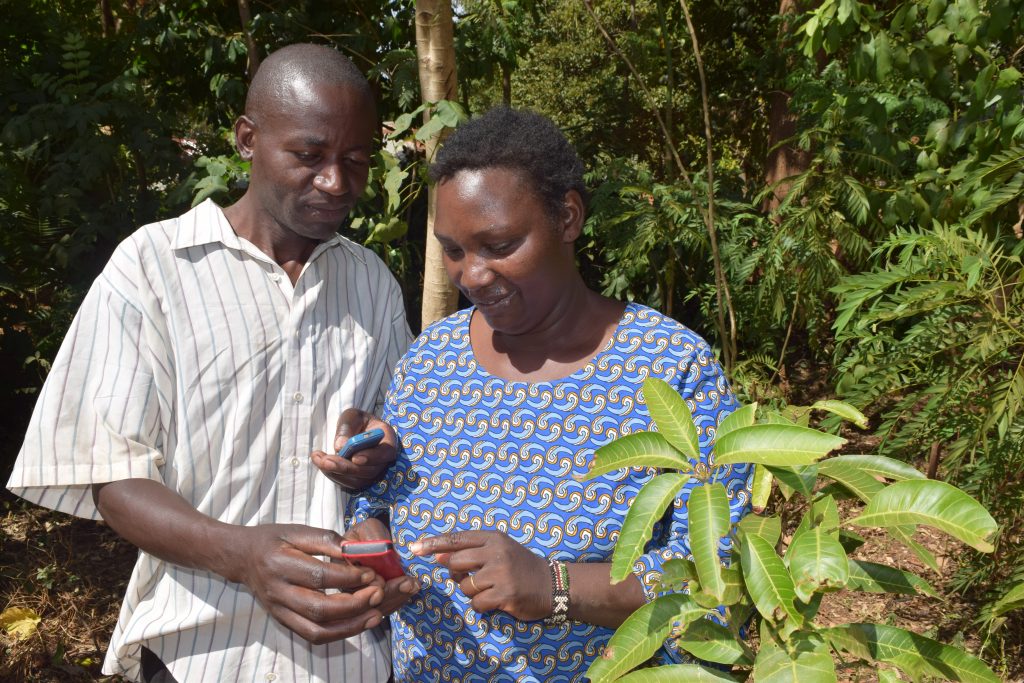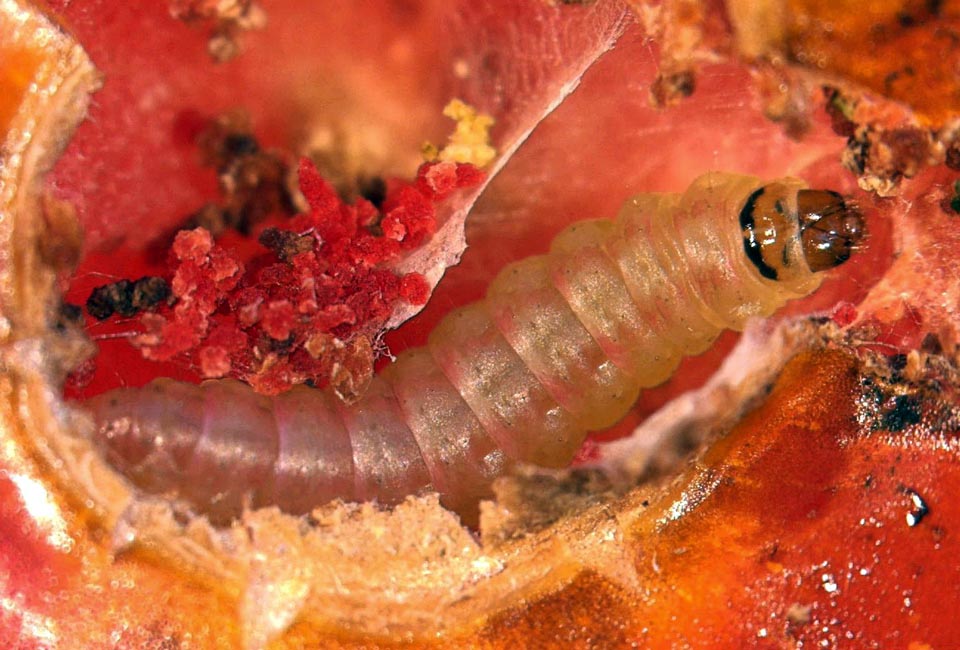Fight against fall armyworm in Kenya ‘mobilised’ with new government text messaging campaign
A new weapon in the fight against the fall armyworm caterpillar in Kenya is being launched giving thousands of smallholder farmers free expert help and advice on how to tackle the devastating pest through mobile SMS text messaging.
Twenty Innovators Selected to Tackle Fall Armyworm in Africa with Digital Solutions
By Lauren Bieniek. Reblogged from Agrilinks. It’s hard to believe that a small worm could destroy millions — millions of tons of crop yields, millions of dollars in farm income and millions of tons of food for families. I’m talking about the Fall Armyworm (FAW), an invasive pest that has spread quickly across the African continent. Originally from the…
A night at the movies: with soybean and fall armyworm as stars of the show
Farmers in northern Ghana are beginning to get a taste of the latest movie out of the Box Office – it’s not a romantic comedy or a thriller – instead it’s a production that will help them get more from their soybean crops and protect their maize from the fall armyworm caterpillar.
Fostering partnerships to combat fall armyworm
Since 2017, CABI has been heavily involved in the international effort to develop and implement a continental framework for tackling fall armyworm in Africa. Initial meetings resulted in the development of a draft framework, which identified roles for different organisations involved in fall armyworm management globally and on the African continent, including CABI. This has…
No stranger to the Victoria Falls: The fall armyworm marches on menacingly
The town of Livingstone, in the Southern Province of Zambia is world renowned for its magnificent views of the Victoria Falls. Annually, thousands of visitors flock this town to awe at one of the seven natural wonders of the world. A few kilometres away from this picturesque view lies Kazungula, a small border town between…
Dr Ulrich Kuhlmann unveils Biopesticides Portal prototype at Biocontrol Africa conference
Dr Ulrich Kuhlmann, CABI’s Executive Director Global Operations, has unveiled a prototype Biopesticides Portal that facilitates the identification, sourcing and application of more environmentally-friendly, cost-effective and sustainable biological control products in the global fights against agricultural pests and diseases. The CABI-led project was highlighted this week (20 March 2018) at the Biocontrol Africa conference in Nairobi,…
Using roundworms to manage the Tomato Leaf Miner
Research recently published in the Journal of Economic Entomology has offered new insight into managing the tomato leaf miner (Tuta absoluta) using entomopathogenic nematodes (EPN). If the pest is not adequately managed, it can cause up to 100% crop loss in both field and green-house grown tomatoes. Also causing further concern is the increasing insecticide…
New report reveals cost of Fall Armyworm to farmers in Africa, provides recommendations for control
CABI has published an ‘evidence note’ report on the invasive Fall Armyworm pest, showing how the caterpillar could cause maize losses costing 12 African countries up to US$6.1 billion per annum, unless control methods are urgently put in place.
A can of worms: fall armyworm invasion in Africa
By CABI’s Roger Day. Reblogged from the Food and Business Knowledge Portal The fall armyworm is still invading regions in Africa. Since 2016 this worm has been spreading across sub-Saharan Africa and has been officially identified in 11 countries. Roger Day from the Centre for Agriculture and Biosciences International (CABI) elaborates on its dangers in this…
Five invasive pests cost African smallholders $1 billion every year
New research by CABI reveals that just five invasive alien species are causing US$0.9 – 1.1 billion in economic losses to smallholder farmers across six eastern African countries each year, equating to 1.8% – 2.2% of total agricultural GDP for the region. These losses are expected to grow to $1.0 – 1.2 billion per year…






